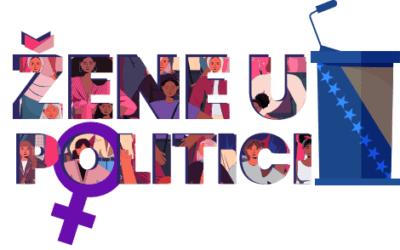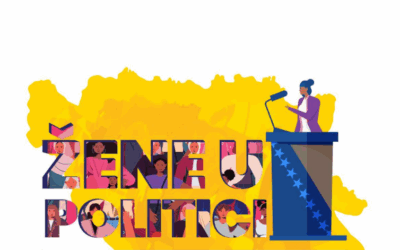
If we want to talk about women’s right in Iran I must say that we don’t even have basic and simple rights inside Iran.
As an Iranian woman who decided to leave Iran I choose to tell my story and through it show what it is like to be a woman in Iran. We are deprived of the most basic rights, such as choosing clothes to wear, riding bike, motor riding, custody, leaving the country even as radical as the right to enter the stadium. The discrimination goes as far as police patrols on the streets who arrest us for not wearing hijab while creating a record at the police station making it extremely difficult for us to ever find job.
Discriminatory Laws
Marriage: The Islamic Republic initially lowered the age of marriage to nine for girls. In 2002, parliament raised the age to 13. The judiciary has blocked subsequent efforts to raise the age of marriage higher.
- A woman could only get a divorce in court with a judge’s order, while a man could get divorce by declaring it verbally. In 2002 the parliament amended the law to allow a woman to divorce her husband if he were imprisoned, mentally ill, physically abusive or an addict.
- All females are required to cover their hair and dress modestly from the age of puberty. The law vaguely defined what constitutes acts against morality, and authorities have long prosecuted hundreds of people for such acts, as well as for consensual extramarital sex.
- A divorced woman forfeited child custody if she remarries, even if her husband died.
- For 40 years, women could not pass their nationality to foreign-born spouses or their children. In 2019, parliament passed a law allowing women married to foreign men to request Iranian citizenship for children under age 18.
- A married woman could not obtain a passport or travel outside Iran without her husband’s written permission. A husband could choose where the couple lives and prevent his wife from taking certain jobs that he deemed against “family values.”
· Inheritance: A widow only inherits one-eighth of her husband’s estate, but a widower inherits his wife’s entire estate. A son inherits twice as much as a daughter. In 2009, parliament voted to let women inherit land.
- The rules on marriage are the most discriminatory. A man can marry up to four women at one time; women can only marry one husband. A woman needs a male guardian’s consent — either from her father or paternal grandfather—to marry.
Muslim women cannot marry non-Muslim men, while Muslim men can marry Jews, Christians, or Zoroastrians. The revolutionary government lowered the age of marriage for women from 18 to 13 (in 1979) then to nine (in 1982). In 2002, the Majles (Parliament) raised the age of marriage back to 13 for girls (and to 15 for boys). In a marriage contract, women are required to be obedient to receive funds for housing, clothes, food, and furniture.
Article 1043 of the Civil Code: “The marriage of a girl who has not married previously is dependent on the permission of her father or her paternal grandfather even if she has reached the full age of puberty. If, however, the father or the paternal grandfather withhold the permission without justifiable reason, the girl can refer to the Special Civil Court giving full particulars of the man whom she wants to marry and also the terms of the marriage and the dowry money agreed upon and notify her father or her paternal grandfather through that Court Article 1059 of the Civil Code: “Marriage of a female Muslim with a non–Muslim is not allowed.” Article 1061 of the Civil Code: “The Government can make the marriage of certain Government servants and officials and students supported by the Government with a female foreign national dependent upon special permission.”
Articles 1106 to 1108 of the Civil Code: “The cost of maintenance of the wife is at the charge of the husband in permanent marriages. Cost of maintenance includes dwelling, clothing, food, furniture in proportion to the situation of the wife, on a reasonable basis, and provision of a servant if the wife is accustomed to have servants or if she needs one because of illness or defects of limbs. If the wife refuses to fulfill duties of a wife without legitimate excuse, she will not be entitled to the cost of maintenance.”
Child Custody
In the law: Women have preferential custody over children under seven. Courts determined whether a mother or father gets custody of children older than seven. A divorced woman forfeits child custody if she remarries, even if her husband is dead.
In practice: Divorced women are likely to lose custody of their children, especially if they are financially dependent on alimony
As an Iranian woman who became pregnant with my boyfriend here, I have no right to return to Iran.
Article 1168 to 1170 of the Civil Code: “Custody of children is both the right and duty of the parents. A mother has preference over others for two years from the birth of her child for the custody of the child and after the lapse of this period custody will devolve on the
father expect in the case of a daughter who will remain under the custody of the mother till 7 years. If the mother becomes insane or marries another man during her period of custody, the custody will devolve on the father.”
Article 1169 of the Civil Code (amended in 2002): “For the custody of children whose parents are separated, the mother has priority until the age of seven; and then, devolve upon the father. After reaching seven years of age, in the case of dispute, considering the best interest of the child, the court will decide who receives custody of the child.”
Dress Code
In the law: Women face restrictions on dress and severe punishment for violations. The Islamic Republic mandated wearing head covering, or hijab, in public. Violators face punishments that include up to two months in prison, fines of up to 500,000 rials and up to 74 lashes.
Article 638 of the Islamic Penal Code: “Anyone in public places and roads who openly commits a harām (sinful) act, in addition to the punishment provided for the act, shall be sentenced to two months’ imprisonment or up to 74 lashes; and if they commit an act that is not punishable but violates public prudence, they shall only be sentenced to ten days to two months’ imprisonment or up to 74 lashes.”
Local laws and customs
Iran is a Muslim country in which Islamic law is strictly enforced. Local traditions should be respected as well as customs, laws and religions always and citizens should be aware of their actions to ensure that they do not offend, especially during the holy month of Ramadan. Same rules are valid for tourists as well. It is forbidden to eat, drink or smoke in public during daylight hours during the month of Ramadan.
Islamic codes of behavior and dress are strictly enforced. In any public place women must cover their heads with a headscarf, wear trousers (or a floor length skirt), and a long-sleeved tunic or coat that reaches to mid-thigh or knee. Men should wear long trousers and long-sleeve shirts. There are additional dress requirements at certain religious sites. Women may be asked to put on a chador (a garment that covers the whole body except the face) before entering.
Relationships between non-Muslim men and Muslim women are illegal, although few Westerners have been prosecuted. If a Muslim woman is found in a relationship with a non-Muslim man, she may be sentenced to be whipped. Women should take extra care, particularly when traveling alone or with friends of the opposite sex. If you are a woman traveling in Iran, you should respect local dress codes and customs and avoid isolated areas. Unmarried partners and friends of the opposite sex traveling together should be always discreet in public. Iranian hotel managers could insist on seeing a marriage certificate before allowing any couple to share a homosexual behavior, adultery, and sex outside of marriage are illegal under Iranian law and can carry the death penalty.
Child marriage in Iran forces girls into a life of oppression
Girls in rural Iran are often forced into marriage at a young age. Protected under Iranian law, the practice is leading to broken families and a generation of children lacking prospects or perspective.
Different reasons for child marriage
Family marries off their kids based on decrepit customs like ‘blood marriages’ or ‘navel string marriages.
In tribal areas, girls are given away in so-called “blood marriages “as a means of resolving an enduring feud between two tribes. “Navel string marriages “are a form of arranged marriage determined when a child is born. A newborn’s umbilical cord is cut symbolically, usually in the name of a cousin, or occasionally, a distant relative. The ceremony is a gesture pledging marriage between the newborn and the cousin or relative. Another category of child marriage is based on people in poverty seeking economic gain. These parents send away their daughters very young to the groom’s house in exchange for a bride price, which depends on how beautiful the girl is or how rich the future husband is. There are also groups in Iran who believe girls should marry ideally before puberty.
Honor killing
Honor killings are common in some cities in Iran. About 20 percent of all murders and 50 percent of family murders in East Azerbaijan province are related to sexual and honor issues. Honor killings are defined as the perpetration of violence against women by male relatives with the intent to murder. Honor killings punish women for bringing so-called disgrace upon their families, for example by refraining from forced marriage, being the victim of rape, getting divorced, having sexual relationships, or adultery.
According to some women’s rights activists, honor killing is rooted in patriarchal law.
For example, Article 630 of the Iranian Penal Code allows a man who witnesses his wife in the act of having sexual intercourse with another man to kill both if he is certain that his wife is a willing participant.
Article 301 of the Code stipulates that the father and paternal grandfather are not to be retaliated against for killing the child.
Honor killings are thought to be rare but that may be because they are usually hushed up.
A 2019 report by a research center affiliated with Iran’s armed forces found that nearly 30 percent of all murder cases in Iran were honor killings of women and girls. The number is unknown, however, as Iran does not publicly release crime statistics.
Discrimination against women
Iranian law is likely a culprit in creating this unequal economic reality. Domestic laws directly discriminate against women’s equal access to employment, including restricting the professions women can enter and denying equal benefits to women in the workforce. Furthermore, Iranian law considers the husband the head of the household, a status that grants him control over his wife’s economic choices. For instance, a husband has the right to prevent his wife from working occupations under certain circumstances, and, in practice, some employers require husbands and fiancés to provide written consent for women to be allowed to work with them. Lawyers told Human Rights Watch that, during divorce court proceedings, husbands regularly accuse their wives of working without their consent or in jobs they deem unsuitable.
A man also has the right to forbid his wife from obtaining a passport to travel abroad and can prevent her from traveling abroad at any time (even if she has a passport). Some employers interviewed said they were unlikely to hire women where extensive travel is involved due to the uncertainty created by these discriminatory legal codes.
The government also fails to enforce laws designed to stop widespread discrimination by employers against women, and Iranian law has inadequate legal protections against sexual harassment in the workplace. Moreover, while Iranian law prohibits discrimination against women in the workplace, its application is not extended to the hiring process, where it is critically needed. Publicly available data shows that government and private sector employers routinely prefer to hire men over women, for technical and managerial positions. Employers in both the public and the private sectors regularly specify gender preferences when advertising position vacancies and do so based on arbitrary and discriminatory criteria. Managers and employees interviewed told Human Rights Watch that they were not aware of any anti-sexual harassment policies at their place of employment, while several women reported instances of sexual harassment. Moreover, interviewees regularly expressed frustration with arbitrary enforcement of discriminatory dress codes.
H.V.


